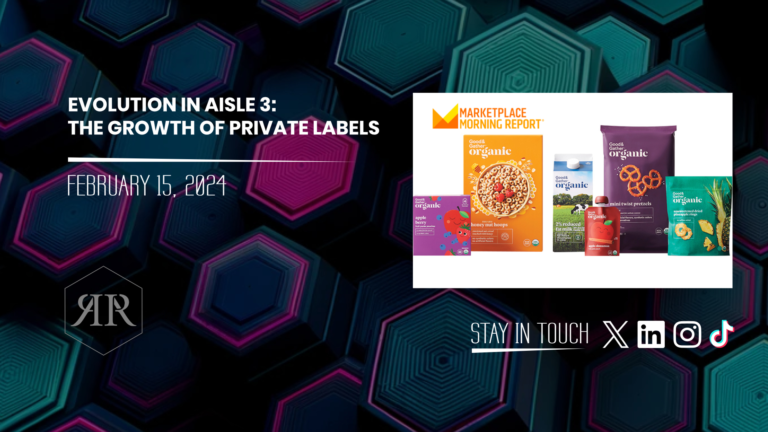Exploring the Evolution and Impact of Private Label Brands in Modern Retail
In the realm of contemporary retail, the ascent of private label brands continues to mark a pivotal shift in consumer purchasing habits and marketplace dynamics. As highlighted in my participation in NPR’s recent report with Meghan McCarthy, this trend reveals much about the economic landscape and the nuanced interplay between brand identity and consumer choice. With private label brands like Target’s Up&Up gaining market share and redefining value, it is crucial to delve into the factors propelling this evolution and its implications for both retailers and consumers.
The Rise of Private Label Brands: A Reflection of Economic Realities
One cannot discuss the increasing prominence of private label brands without acknowledging the backdrop of economic conditions shaping consumer behavior. Persistent inflation and concerns about a looming recession have undeniably contributed to a growing consumer appetite for more cost-effective alternatives to name brands. Private label brands originally emphasized lower cost to the consumer, exploiting the notion of avoiding the ‘brand tax’ associated with marketing and celebrity endorsements inherent in national brands. This pivot towards affordability does not merely represent a tactical shift but a strategic repositioning of private labels within the marketplace.
Gaining Market Share: Beyond Price Point
Interestingly, the narrative surrounding private label brands has transcended the singular focus on cost. As they begin to occupy more space in consumers’ minds and shopping carts, these brands are progressively narrating stories that resonate on deeper levels with their audience. Retailers such as Target and Trader Joe’s have meticulously cultivated their private labels, imbuing them with qualities and values that extend beyond the mere avoidance of a brand tax. The transition from being seen solely as low-cost alternatives to becoming reputable brands in their own right speaks volumes about the evolving marketplace dynamics.
For retailers, the strategic enhancement and expansion of private label offerings present an opportunity to differentiate themselves in a competitive market and foster deeper connections with their customer base. By developing products that align with their brand’s identity and consumer expectations, retailers can enhance customer loyalty and drive sales growth in a way that is symbiotically beneficial.
Conversely, for consumers, the rise of private labels represents an expanded horizon of choices that do not compromise on quality for the sake of affordability. It reflects a democratization of value, where consumers can access products that meet their needs and align with their values, without the premium associated with traditional brands. The implications extend beyond mere savings, influencing consumer behavior, and potentially reshaping brand loyalty in profound ways.
In exploring this transformative trend, it becomes evident that private label brands are not merely responding to economic pressures but are actively reshaping the retail landscape. Their ascendancy and growing market share speak to a savvy understanding of consumer needs and desires, marking a significant evolution in how value, quality, and brand identity intersect in the modern marketplace.






